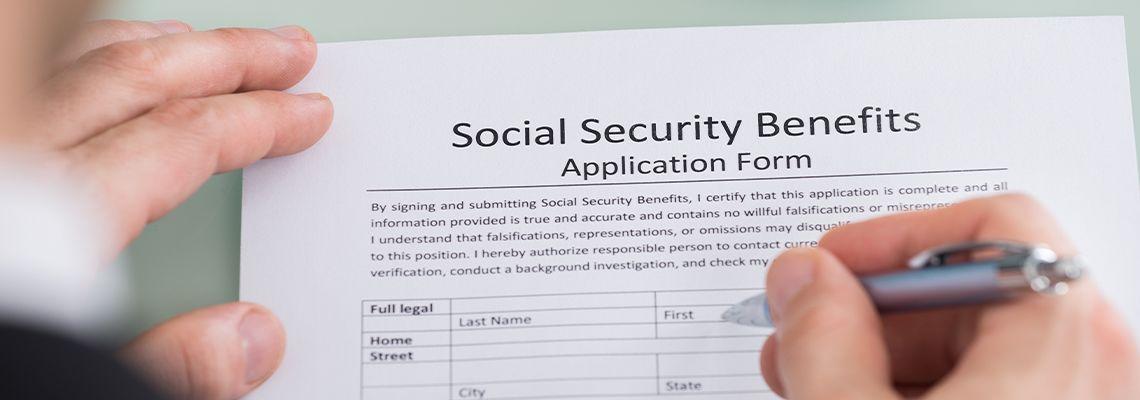Table of Contents
If you’re currently receiving Social Security Disability Insurance (SSDI) benefits, you might be wondering what happens when you reach full retirement age. The transition from SSDI to retirement benefits can feel overwhelming, but rest assured, this process is designed to be seamless.
At Gordon, Wolf & Carney, we’re here to help you understand this shift so you’re prepared throughout the process. Located in Hunt Valley, Maryland, our firm serves clients in Maryland and nationwide, and we have over 100 years of combined experience helping individuals just like you.
Understanding the Basics
When you’re receiving SSDI benefits and reach your full retirement age, those benefits automatically convert into Social Security retirement benefits. You don’t need to apply for this change—it happens on its own.
The amount you receive typically remains the same because SSDI and full retirement benefits are calculated similarly. However, it’s essential to be aware of certain factors, such as how this conversion might impact other benefits you’re receiving or your overall financial situation.
This transition ensures you continue to have a steady source of income during retirement. However, Social Security rules are not always straightforward, and you might run into questions or uncertainties along the way. That’s where we come in. We can assess your unique circumstances and guide you through any steps necessary to protect your income and rights.
How the Transition to Retirement Benefits Works
The Social Security Administration (SSA) handles SSDI to retirement benefit transitions automatically. Your SSDI payments will cease, and retirement benefits will begin.
The shift doesn’t require additional paperwork, but it’s wise to review how the change could impact your overall financial plan. For example, if you’re receiving other forms of support, such as Supplemental Security Income (SSI) or benefits tied to your disability status, you’ll want to know whether those benefits are affected.
We strongly encourage our clients to reach out to us during this period to review their financial setup. It’s one thing to know the transition is automatic. It’s another to understand exactly how it will impact your financial security and long-term goals. With our experience, we can help you protect what matters most during this important life stage.
Factors to Consider
While the mechanics of the transition are straightforward, there are some key factors you may need to consider:
- Age of transition: The full retirement age is determined based on the year you were born. For example, if you were born in 1960 or later, your full retirement age is 67. Understanding this timeline is crucial to planning for the timing of the switch.
- Impact on dependents’ benefits: If your family members are receiving dependents’ benefits under your SSDI, those benefits may change once you transition to retirement benefits.
- Medicare coverage: SSDI recipients qualify for Medicare after 24 months of benefits. This coverage remains intact after the transition, but your premiums might be affected. Reviewing your health insurance situation during this time is essential.
- Income tax considerations: Depending on your total income, a portion of your retirement benefits may be taxable. This is something to plan ahead for when budgeting your retirement income.
Trying to be mindful of these considerations without legal guidance might lead to missed opportunities or financial strain. Our team at Gordon, Wolf & Carney can help you evaluate these factors and make informed decisions to safeguard your financial future.
Common Questions About The Transition
We’ve helped many clients through this process, and here are some of the most frequently asked questions we’ve encountered regarding the SSDI to retirement benefits transition.
Will my benefits amount change?
For most individuals, your monthly check remains the same. However, if you’ve been receiving additional benefits explicitly tied to your disability status, those might be impacted. Reach out to us to review your benefit amounts and reduce the chances of surprises.
Do I need to notify the Social Security Administration?
No, the shift happens automatically when you reach full retirement age. However, if you notice any discrepancies or are unclear about changes, we can help you advocate for your rights and resolve any issues that arise.
How should I plan for taxes on my retirement benefits?
A portion of your benefits might be taxable depending on your total income, including income from pensions, investments, or work. This can be a complicated area, but we’re here to help you understand your tax obligations and plan ahead.
Why Legal Support Matters
The laws around Social Security can be confusing, especially when you’re in a life transition like moving from SSDI to retirement. We know how important it is for you to maintain your financial security—not just now but in the years ahead.
By partnering with Gordon, Wolf & Carney, you’ll have the peace of mind that comes from knowing you have experienced advocates on your side. We’re not just focused on the technicalities—we’re focused on you.
Whether you need advice on protecting your retirement income, handling disputes with the SSA, or understanding how rules apply to your unique circumstances, we’re just a phone call away. With over 100 years of combined experience, we’ve seen it all, and we’re committed to seeing you through.
How to Get Started
Transitioning from SSDI to retirement benefits doesn’t have to be a headache. With the right plan and an experienced team in your corner, you can face this change with confidence. If you have questions about your benefits, concerns about your financial future, or simply want someone to walk you through your options, reach out to us today.
At Gordon, Wolf & Carney, we take pride in helping people. Located in Hunt Valley, Maryland, we’re proud to serve clients both locally and nationwide. Contact us to schedule a consultation and take the first step toward clarity and peace of mind.










